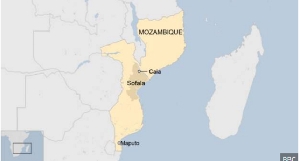Opinions of Tuesday, 1 July 2014
Columnist: Bokor, Michael J. K.
On the fuel crisis: Why rob Peter to pay Paul?
By Dr. Michael J.K. Bokor
Saturday, June 28, 2014
Folks, I can’t bring myself to understand, let alone accept, what is happening in the fuel sector in the country. The causes of the current fuel crisis in the country did not crop up overnight, which is why I am unhappy at the manner in which the government is attempting to address the crisis. In short, the crisis could have been more easily prevented than solved with a knee-jerk action of the sort that the government has taken.
News reports have it that it has “released its strategic reserve to remedy the dire fuel shortage in some parts of the country,” as announced by Information and Media Relations Minister, Mahama Ayariga. (See: http://www.ghanaweb.com/GhanaHomePage/NewsArchive/artikel.php?ID=314629)
He said President Mahama on Friday morning, directed that Bulk Oil Storage & Transportation (BOST) Company Limited discharges fuel in its facilities dotted across the country to ease the pressure. “BOST started pumping out early part of the day when the president gave the directive,” he told Evans Mensah on Joy FM’s Top Story Friday.
Ordering that the strategic reserves be released is very easy, but tracing the cause of the crisis and explaining why the government waited for the situation to reach this dire level before acting isn’t. We are told that the main factor responsible for this mess is the government’s indebtedness to bulk oil distribution companies to the tune of 1.5 billion Cedis. The government has disputed this quantum but gone ahead to pay Ghc450 million, according to Ayariga. It has also claimed to have facilitated a forex cover of $100m to enable the oil distributors to get oil from their suppliers.
A knee-jerk reaction to a crisis that is easier to prevent than to solve? Wasting energy grabbing the bull’s tail instead of its horns to control it? Pathetic!!
As Senyo Hosi, the Chief Executive Officer of the Chamber of Bulk Oil Distribution Companies (BDC), is reported to have said, “There is stock available on the market, on the shores of Ghana; but it is just that it is on a financial hold. You pay you get financial access to it from the international suppliers.” So, the issue is clear: the fuel crisis is the result of government’s indebtedness to the local distributors.
No one in government can persuade me that the government didn’t know its indebtedness to the oil distributors or that its sloppy handling of affairs would lead to the fuel crisis now crippling national life at several levels.
I am very much concerned because this is the first time in the country’s history that its strategic oil reserves have been so touched. And this has happened at a time when productivity is falling fast and the economy continues to sag just because requisite policies are not being implemented to solve problems. How can a country be developed this way?
Problems in the energy sector have already had a huge negative impact on national life. Adding this fuel crisis to the lot will compound those problems and virtually drag activities to an agonizing halt. What at all is happening?
The government cannot persuade me that it knows how to handle this particular fuel problem without further worsening living conditions. Talk is rife that fuel prices will soon be raised, coming after tariffs on electricity and water have already been raised to 12% and 6.1%, respectively.
What is the morale justification for raising tariffs on utilities that are not supplied constantly or consistently to consumers? How do they get value for their money? Without intending to condemn the government as grossly incompetent, suffice it for me to say that evidence from its flip-flopping and flim-flammery point me to that conclusion. What at all can the government do efficiently without unnecessarily antagonizing the citizens?
Indeed, this fuel crisis has the potential to precipitate many happenings with negative consequences for the country. Of course, fuel hoarding or adulteration will be one negative practice. Those seeking to cash in will also sell fuel at cut-throat prices on the black market while others will smuggle whatever is available to neighbouring countries for sale.
Now that the government has dipped its hands into the strategic reserves, it is clear that something really serious is happening that Ghanaians haven’t been told. And we wonder when the reserves now being drained will be replenished to ensure fuel security in the near future. The price of crude oil is rising on the international market, and the government needs to know the implications as it mulls how to replenish the strategic reserves.
Lay people may also wonder why Ghana isn’t getting any crude oil being drilled at home (Jubilee Oilfields) for refining. Why isn’t Ghana benefiting from its own natural resource but has to import refined oil? Others may also wonder why the Tema Oil Refinery exists at all or whether it still has the capacity to refine crude oil produced in Ghana!
You see, folks, there are questions than answers at this stage. We are worried at the knee-jerk approach that the government is using to solve serious problems with wide-ranging negative consequences for the country and its citizens.
Which “strategic reserve” will be the next attraction? The Heritage Fund or any other hidden from Ghanaians all these years? Are we really safe?
The time has come for the government to detach itself from economic sectors that can better be handled by competent private entrepreneurs who know how to manage businesses. In the fuel sector, for instance, the government should have no business importing petroleum products and fixing prices on as retailed. It should be left to the private sector and controlled by the supply-demand exigency. All the government has to do is to exercise its supervisory authority and implement policies and measures to curtail impropriety. The market forces should determine the price regime, not the government or the National Petroleum Authority. It is none of their business; it should be for the private sector to handle.
Consumers should know which company will not exploit them by raising prices arbitrarily and buy fuel from their retail points. If it is Mobil Oil that is “friendly” in that sense, it will attract consumers while the bad nuts are left with no option by to toe the line in fixing reasonable prices. Thus, the market forces will determine daily prices of the petroleum products. By relinquishing that stranglehold on the sector, the government will be disburdening itself and turning attention to more crucial aspects. But in Ghana, where everyone in any position of trust (especially as far as politics and governance are concerned), can the government afford not to retain its stranglehold on this sector? Somebody’s opportunity for grabbing kickbacks will be closed, which is why none in government will nurse this idea of ceding everything to the private sector.
In any case, this current fuel crisis speaks volumes and paints the government as wobbly. It is unfair to the citizens. I wonder when something will be done in a more efficient manner to put Ghana back on an even keel and instill confidence in the people that their democracy is designed to solve existential problems.
I shall return…
• E-mail: mjbokor@yahoo.com
• Join me on Facebook at: http://www.facebook.com/mjkbokor












